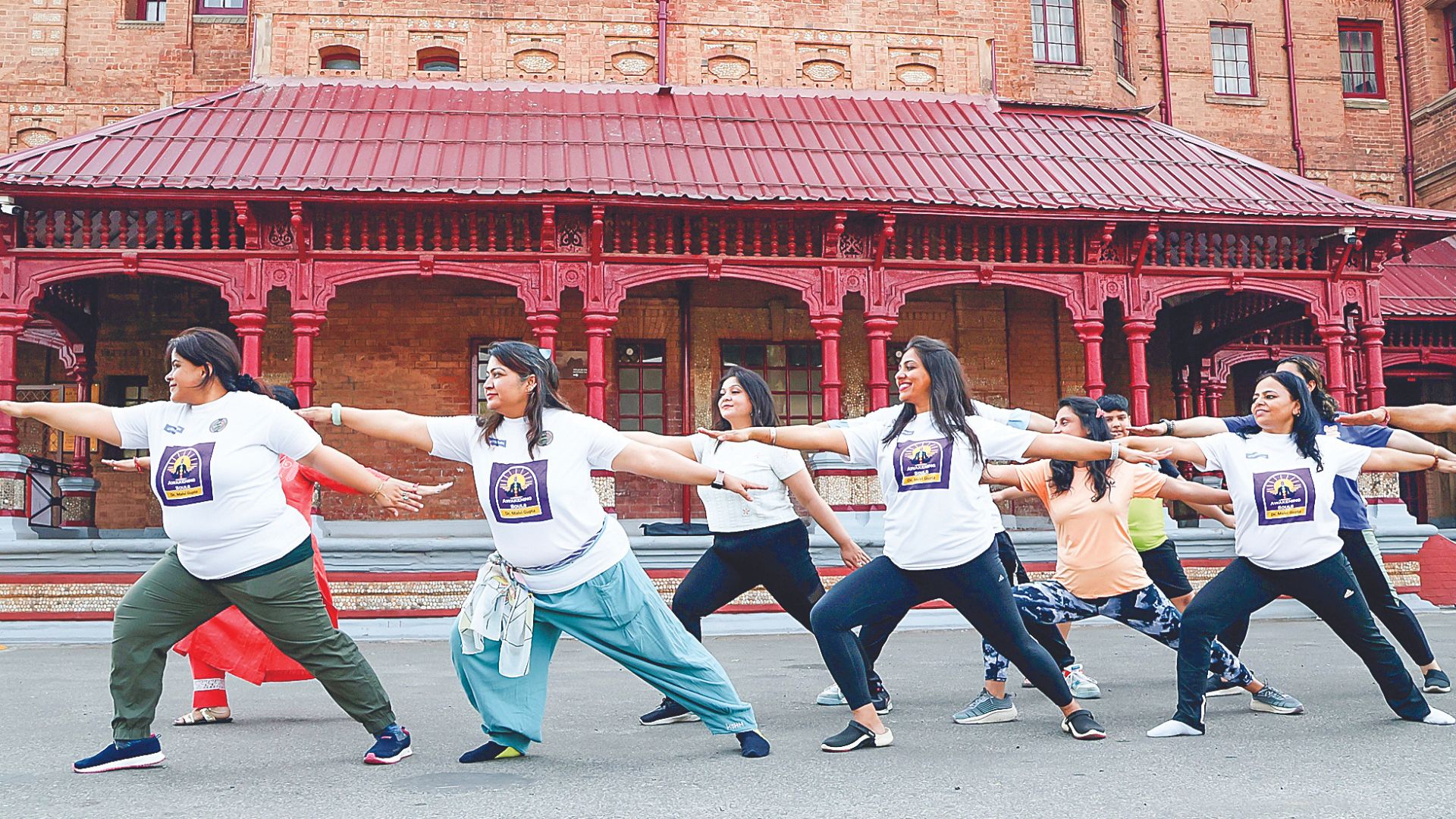
When interpreting the word “Yoga” in English, it stands for “Your Objectives, Guidelines, and Assessment.” In Sanskrit, it originates from the word ‘Yug,’ which means ‘union,’ broadly referring to the integrated experience of the soul and health. Yoga is a branch of religious and spiritual traditions that emerged from the practices of ancient Indian Hinduism. It originated in Northern India 5,000 years ago. The earliest mention of this word is found in the ancient sacred text, the Rigveda, recognizing it as a powerful practice for physical, mental, and spiritual well-being. In developed countries, yoga is rapidly gaining recognition and use as a health practice for various immunological, neuromuscular, psychological, and pain conditions. There are over 300 million yoga practitioners worldwide today, with Indian yoga leading the way globally.
Yoga has crossed cultural and ethnic boundaries, reaching every corner of the world with its magical effects. Although yoga originated in India and is part of the country’s cultural fabric, only about 12 percent of Indians practice yoga. According to statistics, approximately 41 percent practice yoga during the day and about 42 percent at night in India. Globally, yoga has become an industry estimated to be over $200 billion by 2025, currently around $90 billion. Countries like Canada, the United States, Australia, Singapore, Ireland, and India are popular places for yoga and significantly contribute to the growth of the yoga industry. Only 20 percent of young people aged 18 to 29 practice yoga. Of the total number of yoga practitioners worldwide, 72 percent are women. In India, 55 percent of yoga practitioners are men, and 45 percent are women.
In recent years, yoga has emerged as an essential tool for women’s empowerment. The theme of International Yoga Day 2024 is ‘Yoga for Women’s Empowerment,’ aiming to promote women’s well-being and transform yoga into a broad movement with a particular emphasis on advancing global health and peace. This initiative aims to promote women’s empowerment. This effort will play a significant role in empowering women and addressing their physical, mental, emotional, social, and spiritual needs, with yoga serving as an essential tool. An empowered woman can direct change in leadership roles and play a crucial role in building an inclusive, diverse, and empowered society.
Initially, more men practiced yoga, but it has become a female-dominated industry over the past few decades. Yoga is marketed as beneficial for women’s health and beauty, which can be maintained into old age. Additionally, pregnant women are advised and encouraged to practice prenatal yoga, making education important. Yoga education empowers women by providing the tools and knowledge for their well-being and helping others. Training in yoga education paves the way for a fulfilling and empowering career for women. It promotes holistic health education and teaches women about their physical health and well-being. Health-related information and knowledge are also innovative steps toward women’s empowerment.
Yoga education helps women understand the human body and its functioning. Through asanas (postures), women develop strength, flexibility, and endurance. This physical empowerment enhances their confidence and sense of self-control. Yoga education often includes stress-reducing techniques such as meditation, pranayama (breath exercises), and mindfulness. These help women manage stress, anxiety, and emotional turmoil. Practices that encourage self-reflection and mindfulness also help women develop a deeper understanding of themselves and their emotions. This self-awareness is crucial for personal growth and emotional balance.
Yoga classes and workshops provide a space for women to connect with others who share similar interests and challenges, strengthening a sense of community support. Women who pursue yoga education often find leadership and teaching opportunities in their communities. This not only boosts their confidence but also establishes them as role models for others. Similarly, yoga education includes teachings based on meditation and philosophy beyond physical postures, promoting spiritual growth. The spiritual aspects of yoga encourage women to find inner peace and strength, helping them to face life’s challenges with more ease and confidence.
If yoga education is pursued with the aim of obtaining a degree, it opens career opportunities as a certified yoga instructor. This can lead to economic self-reliance and professional satisfaction. Today, many women use their yoga education for their businesses, such as yoga studios, wellness centers, or online yoga classes. This entrepreneurial spirit economically empowers them. By engaging in yoga education, women can challenge the social norms and stereotypes that limit their roles and possibilities. Yoga promotes self-expression and personality, allowing women to challenge traditional stereotypes. Women educated in yoga principles can advocate for broader social changes, promoting equality and holistic well-being. Yoga education includes not only physical fitness but also nutrition, lifestyle choices, and mental health. This holistic approach empowers women to take a comprehensive view of their health and well-being. With a deep understanding of holistic health, women can rely on themselves to make decisions about their lives, from diet and exercise to stress management and self-care.
This International Yoga Day, let’s strive to promote women’s empowerment through yoga education. Initiatives such as guidance programs, where experienced yoga practitioners guide women during their yoga education journey, should be encouraged. It should be ensured that yoga education is accessible to women from all backgrounds, including women from every community. Affordable or free yoga classes would be significantly helpful. Yoga education should be widely disseminated in partnership with various organizations and community groups, focusing on women’s empowerment. Workshops and programs should be created to address everyday issues such as childbirth, menopause, fatigue, and related health concerns. This way, yoga education helps women realize their full potential, empowers them, and helps them live complete lives. Let’s welcome this initiative
The Author is eminent zoologist and Vice Chancellor of Doctor Harisingh Gour Central University, Sagar (MP)















